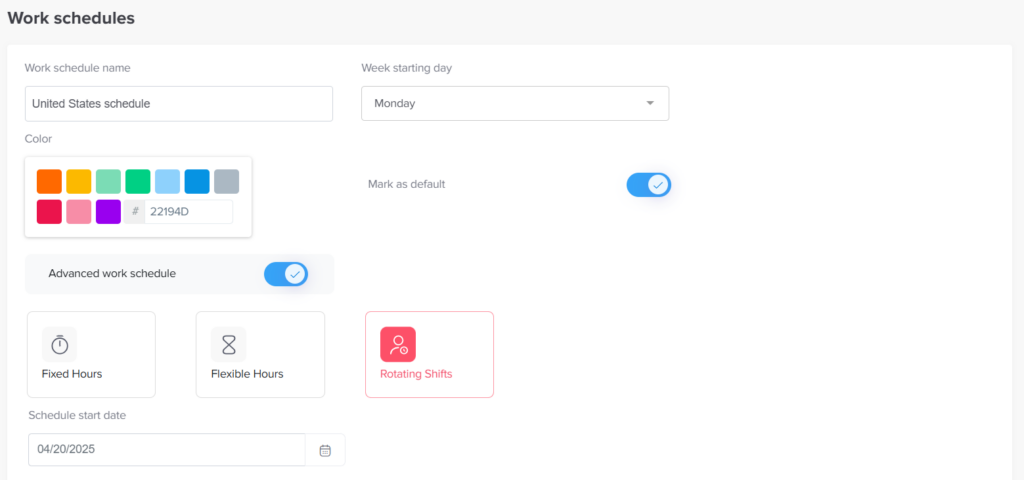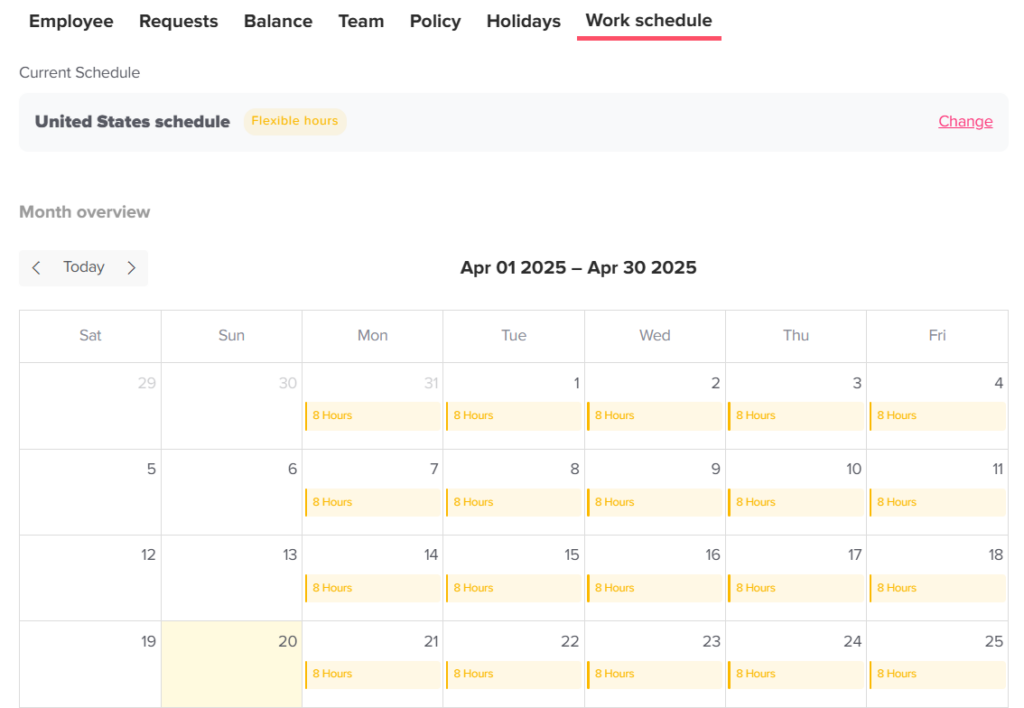Table of Contents
ToggleIn the world of modern work schedules, few terms spark as much curiosity and confusion as “rotating weekend.” Whether you’re considering a job that mentions this term or you’re just trying to understand how it might impact your life, it’s important to grasp not only what rotating weekends are, but also how they function in real-life settings, what they mean for your time, and how they fit into different industries.
This in-depth guide will walk you through everything you need to know about rotating weekends, what they are, why they’re used, the various types of rotations, their advantages and disadvantages, and how to thrive in a rotating weekend schedule.
What Are Rotating Weekends?
At its core, a “rotating weekend” schedule means that employees take turns working weekends, rather than having the same people work every Saturday and Sunday. This rotational system is designed to evenly distribute the responsibility of weekend work among a team.
For example, in a simple 2-week cycle:
Week 1: You work Saturday and Sunday.
Week 2: You have the weekend off.
This rotation continues on a loop. In some setups, the rotation spans 3 or 4 weeks, depending on the number of employees and organizational needs.
Rotating weekends ensure that no single person is always missing out on weekend time with family or rest. It’s a strategy built on fairness and operational necessity, helping teams provide weekend coverage while preserving morale.
Why Do Employers Use Rotating Weekend Schedules?
Maintaining Continuous Operations
In sectors like healthcare, hospitality, retail, and customer service, business doesn’t stop on weekends. Patients still need care, guests check in at all hours, and customers expect timely support. A rotating weekend schedule ensures consistent coverage without overburdening a core group of employees, keeping operations running smoothly seven days a week.
Fostering Fairness and Preventing Burnout
When the same employees are repeatedly scheduled for weekend shifts, it can quickly lead to dissatisfaction and fatigue. A rotating schedule distributes these responsibilities equitably, giving everyone the chance to enjoy valuable weekend time off. This approach enhances morale, supports work-life balance, and cultivates a more cohesive and motivated team.
Ensuring Compliance with Labor Regulations
In many regions, labor laws or union agreements limit how often employees can work weekends or require mandatory rest periods. A rotating system helps businesses stay compliant with these legal and contractual obligations, reducing risk and demonstrating a commitment to ethical workplace practices.
Customizable Work Schedules With Day Off

Day Off goes far beyond simple time-off tracking, it gives you complete control over setting and managing work schedules across your entire organization. Whether your business operates on fixed shifts, rotating patterns, or highly customized schedules, the platform adapts to your needs with flexibility and precision.
Create Multiple Schedule Types
You can build as many schedule templates as your organization requires. Whether you have employees working standard Monday–Friday hours, weekend shifts, split shifts, or rotating schedules that change weekly or monthly, Day Off allows you to design these templates from scratch. This means you can reflect real-world working conditions in the app, from typical 9-to-5 jobs to complex 24/7 operations.
Assign Schedules to Employees
Once your schedules are created, you can assign each employee to the one that fits their role. This ensures that every team member has clear visibility into their upcoming shifts and workdays. No confusion, no overlap, just a well-organized, transparent schedule that aligns with both operational requirements and employee expectations. This is especially valuable in environments with multiple teams working under different rules, such as healthcare, customer service, manufacturing, or remote and hybrid setups.
Manually Adjust Schedules Anytime
Even the most well-planned schedules need occasional adjustments, whether it’s to accommodate time-off requests, shift swaps, or last-minute operational changes. Day Off makes this easy by allowing you to override or modify an individual’s schedule without affecting the rest of the team. Managers can make real-time edits with just a few clicks, ensuring the system stays flexible and responsive to daily needs.

Common Rotating Weekend Schedule Formats
Not all weekend rotations are built the same. Each structure serves different team sizes, operational demands, and employee needs. Here are the most widely used formats:
1-On, 1-Off (Biweekly Rotation)
One of the most straightforward and popular options, this model has employees alternating weekends:
Week 1: Work the weekend
Week 2: Weekend off
It’s simple to manage, easy for employees to remember, and ensures everyone gets regular downtime. Ideal for smaller teams that need to distribute weekend duties evenly.
3-Week or 4-Week Rotation
For larger teams or more demanding roles, a longer rotation cycle offers greater flexibility and recovery time. For example:
Work: Weekends 1 & 3
Off: Weekends 2 & 4
This model helps reduce the frequency of weekend shifts, especially valuable in high-stress roles like healthcare, emergency services, or law enforcement, where extended rest can boost performance and well-being.
Partial or Split Weekend Work
Instead of working both days, employees work just one day, either Saturday or Sunday. This is commonly used in:
Customer service
Retail
Part-time or student roles
It’s a more flexible option that provides valuable personal time while still maintaining necessary weekend coverage.
Rotating Weekends with Shift Variations
In some 24/7 operations, weekend shifts are combined with rotating hours, day, evening, or night. While this setup can be challenging, it’s often necessary in:
Hospitals
Manufacturing plants
Call centers
This format demands more careful planning but ensures fair distribution of both weekend and off-hour duties.
Impact of Rotating Weekends on Work-Life Balance
Rotating weekend schedules affect more than just your calendar, they shape your lifestyle, relationships, and well-being. While they offer fairness and predictability, they also introduce real challenges.
Disrupted Social and Family Time
Most social events and family gatherings happen on weekends. If you’re working while others are off, you might miss out. Even with rotating time off, staying connected requires extra planning and communication.
Parenting and Childcare Challenges
Weekend shifts can be tough for working parents, especially with limited daycare options. A strong support system, partners, relatives, or reliable babysitters, is essential to manage weekend coverage smoothly.
Health and Energy Drain
Irregular weekend shifts can disrupt sleep and energy levels. Over time, this may affect mood and well-being. Prioritizing rest, staying hydrated, and keeping consistent sleep routines help maintain balance.
Benefits of Rotating Weekend Schedules
Despite the hurdles, rotating weekend schedules offer meaningful advantages, especially compared to fixed weekend roles or unpredictable on-call setups. Here’s what many employees appreciate:
A Sense of Fairness
Rotating weekends ensure that no one person is always stuck with the “short straw.” Everyone shares the responsibility of weekend shifts, which promotes fairness, equality, and team cohesion. It helps prevent burnout and resentment that can build up when weekend work falls on the same shoulders week after week.
Improved Planning and Time Management
Knowing your schedule ahead of time, even if it rotates, gives you the power to plan more effectively. From medical appointments and social events to family trips and solo downtime, having clarity around your work calendar allows you to make the most of your personal life. You can look ahead and prepare instead of constantly reacting to last-minute changes.
Unique Perks of Midweek Time Off
When your weekend doesn’t fall on Saturday and Sunday, you’ll often enjoy the hidden perks of midweek downtime. Stores are less crowded, appointments are easier to book, and popular places like gyms or salons are quieter. You may find that your off days feel more relaxed and productive, ideal for errands or personal hobbies without the usual weekend rush.
Challenges of Rotating Weekends And How to Manage Them
Rotating weekend schedules offer balance, but they also come with real-life disruptions. Here’s how to face the common difficulties and turn them into manageable situations:
Lack of Routine and Stability
Switching between working some weekends and having others off can throw off your routines, whether it’s meal prep, family traditions, or your time. To maintain consistency, create routines that are based on your “work cycle,” not just the calendar. For example, instead of always doing yoga on Saturday mornings, try “yoga on my second day off.” This mindset shift can help you maintain balance regardless of your rotating days.
Increased Risk of Fatigue
Weekend work, especially in high-stress or physically demanding roles, can wear you down. To avoid burnout, it’s crucial to use your off-days wisely. Treat them as non-negotiable time for rest and recovery. Say no when needed, limit social obligations during high-fatigue weeks, and practice quality self-care. Protect your energy like it’s part of your job, because it is.
Social Misalignment
It can be frustrating when your free time doesn’t line up with that of your family or friends. While this mismatch is hard to avoid, it helps to be proactive. Share your schedule early with those close to you, plan meetups, and consider alternative ways to stay connected, quick check-ins, shared calendars, or recurring virtual hangouts can help bridge the gap.
Frequently Asked Questions About Rotating Weekend Schedules
Do rotating weekend schedules always include both Saturday and Sunday?
Not necessarily. While many rotating schedules involve full weekend coverage (Saturday and Sunday), some businesses rotate only one weekend day, usually the busier one. For example, retail stores may have employees rotate working Saturdays only, while Sundays are either lighter or covered by a different team.
Can employees swap rotating weekend shifts with each other?
In many workplaces, yes, shift swapping is allowed, often with managerial approval. However, policies vary by company. If flexibility is important to you, ask your employer if shift trades are permitted and whether there’s a process in place to request or track swaps.
How far in advance are rotating weekend schedules usually posted?
This varies by employer, but best practice is to post schedules at least 2–4 weeks in advance. This gives employees time to plan personal events or request changes. If your organization uses a scheduling platform like Day Off, notifications and calendar syncs can make this process smoother.
Are rotating weekend schedules considered full-time or part-time work?
Either. A rotating weekend schedule refers to when you work, not how much you work. It can apply to both full-time and part-time roles. For part-time employees, weekend shifts may be their primary hours, while full-timers rotate between weekdays and weekends.
Can you opt out of a rotating weekend schedule?
In most cases, rotating weekends are part of the job requirement, especially in industries that rely on weekend staffing. However, employers may accommodate certain situations (e.g., caregiving, health reasons) with modified schedules or exemptions. It’s always worth having a conversation with your manager or HR team if you have a valid concern.
Are rotating weekend schedules more common in certain industries?
Yes. Industries that require 24/7 or extended-hour coverage often rely on rotating weekend schedules. These include:
Healthcare (hospitals, clinics, long-term care)
Customer service and call centers
Retail and hospitality
Manufacturing and logistics
Public safety (police, fire, EMS)
Does working rotating weekends affect overtime pay?
It can, depending on your total hours worked. In most regions, overtime is calculated based on total weekly hours, not whether you worked a weekend. If your rotating schedule results in more than 40 hours in a week (or the local full-time equivalent), you may be eligible for overtime pay. Check your local labor laws or union agreement for details.
How can I track my rotating weekend schedule effectively?
Using a digital tool like Day Off makes it easy to view, manage, and adjust rotating weekend shifts. Features like shared calendars, notifications, and custom schedule templates help employees and managers stay aligned, especially when shifts vary week to week.
Conclusion
A rotating weekend schedule can be both a strategic solution for businesses and a lifestyle adjustment for employees. While it introduces challenges like disrupted routines and social conflicts, it also offers fairness, flexibility, and better planning opportunities. With the right tools, habits, and mindset, teams and individuals can not only manage rotating weekends, but truly thrive with them. Whether you’re creating a schedule or adapting to one, success lies in balance, preparation, and communication.
